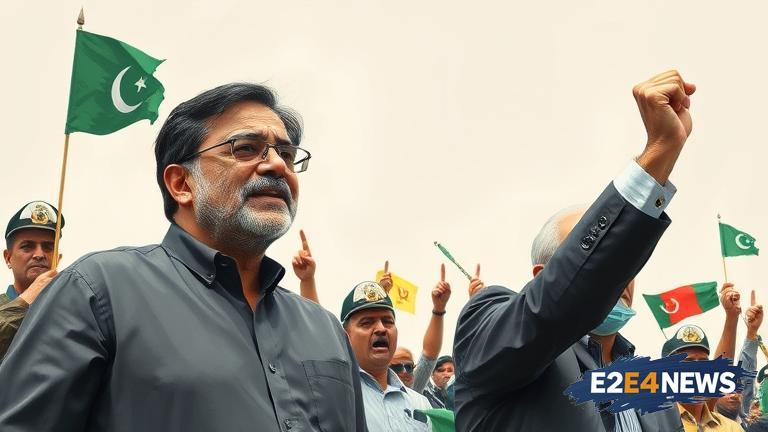The recent suspension of several Members of the Provincial Assembly (MPAs) in Pakistan has led to a deepening divide among the lawmakers over the government’s decision to limit protests in the country. The suspended MPAs, who are primarily from the opposition parties, have been vocal about their discontent with the government’s move, citing it as an attempt to stifle their freedom of speech and assembly. However, some of the suspended lawmakers have expressed reservations about the opposition’s plan to stage a protest against the government’s decision, fearing that it may lead to violence and unrest. The opposition parties have been criticizing the government for its alleged attempts to curb dissent and limit the space for political expression. The government, on the other hand, has maintained that the restrictions on protests are necessary to maintain law and order in the country. The debate over the protest limitations has sparked a heated discussion among the lawmakers, with some arguing that it is a necessary measure to prevent chaos and others seeing it as an attack on democratic freedoms. The suspended MPAs have been holding meetings and consultations to discuss their strategy and plan of action, but the divisions within their ranks have made it challenging to reach a consensus. Some of the lawmakers have suggested that the opposition should explore alternative forms of protest, such as rallies and demonstrations, that do not disrupt public life. Others have argued that the government’s restrictions are too stringent and that the opposition should challenge them in court. The situation has been further complicated by the fact that some of the suspended MPAs have been facing charges of corruption and misconduct, which has led to questions about their credibility and motives. Despite these challenges, the opposition parties have vowed to continue their struggle against the government’s decision, citing it as a matter of principle and a fight for democratic rights. The government, however, remains adamant that it will not back down from its decision, citing concerns about public safety and security. The standoff between the government and the opposition has led to a sense of uncertainty and tension in the country, with many wondering what the outcome will be. As the situation continues to unfold, it remains to be seen whether the opposition will be able to mobilize public support and pressure the government to reconsider its decision. The international community has also been watching the situation closely, with some expressing concerns about the implications of the protest limitations for democratic freedoms in Pakistan. The country’s human rights organizations have also been critical of the government’s move, arguing that it is a clear attempt to restrict the space for political expression and dissent. In conclusion, the debate over the protest limitations in Pakistan has highlighted the deepening divisions within the country’s political landscape and the challenges faced by the opposition in its struggle against the government’s decision.
